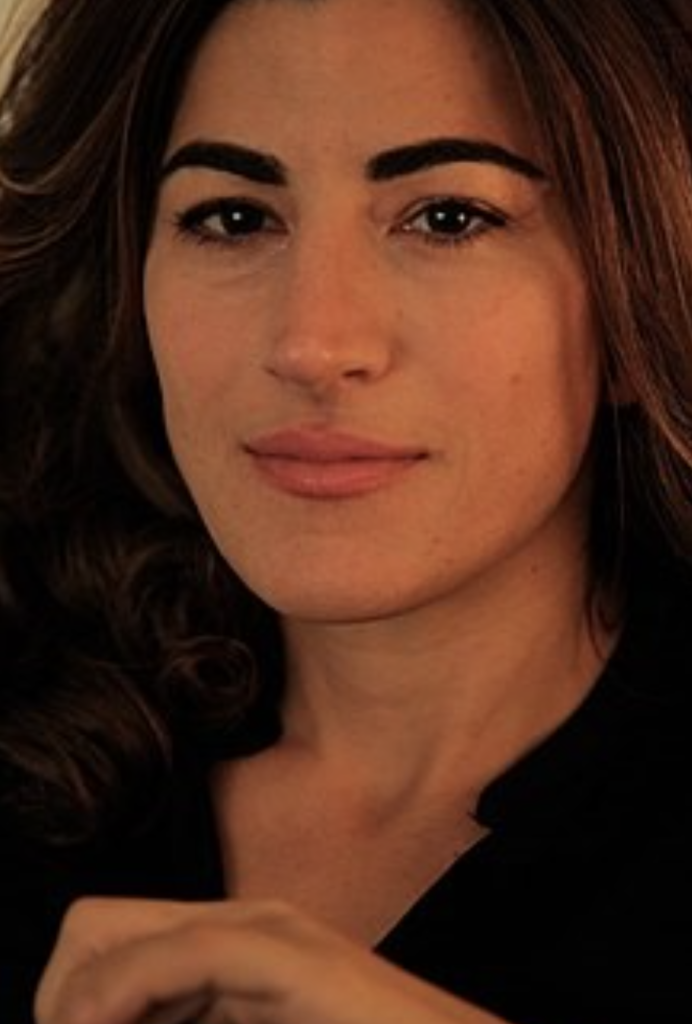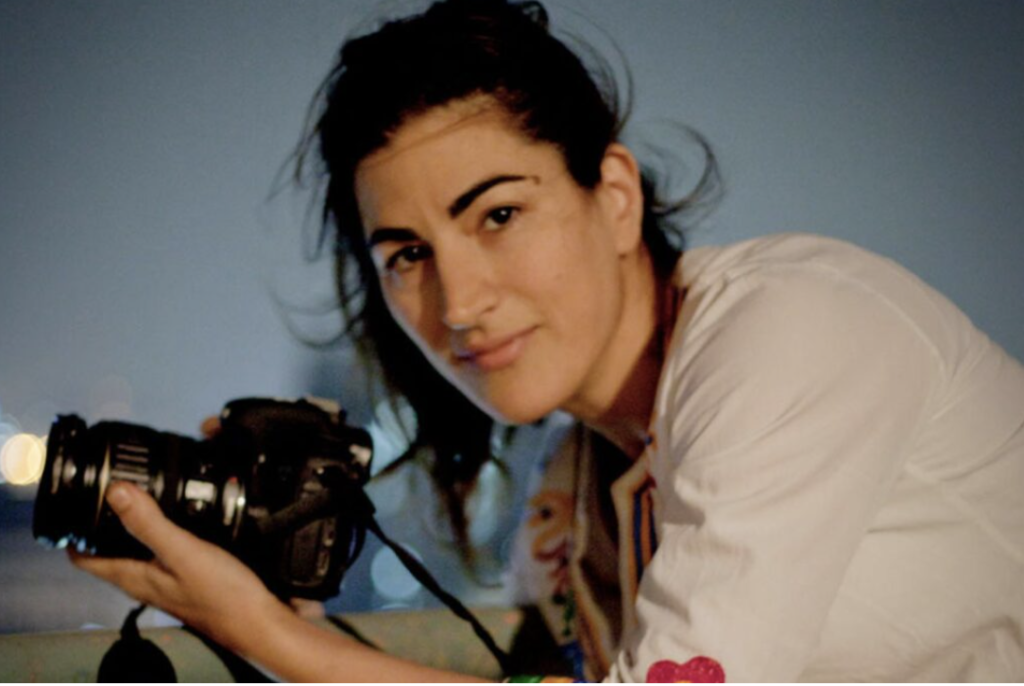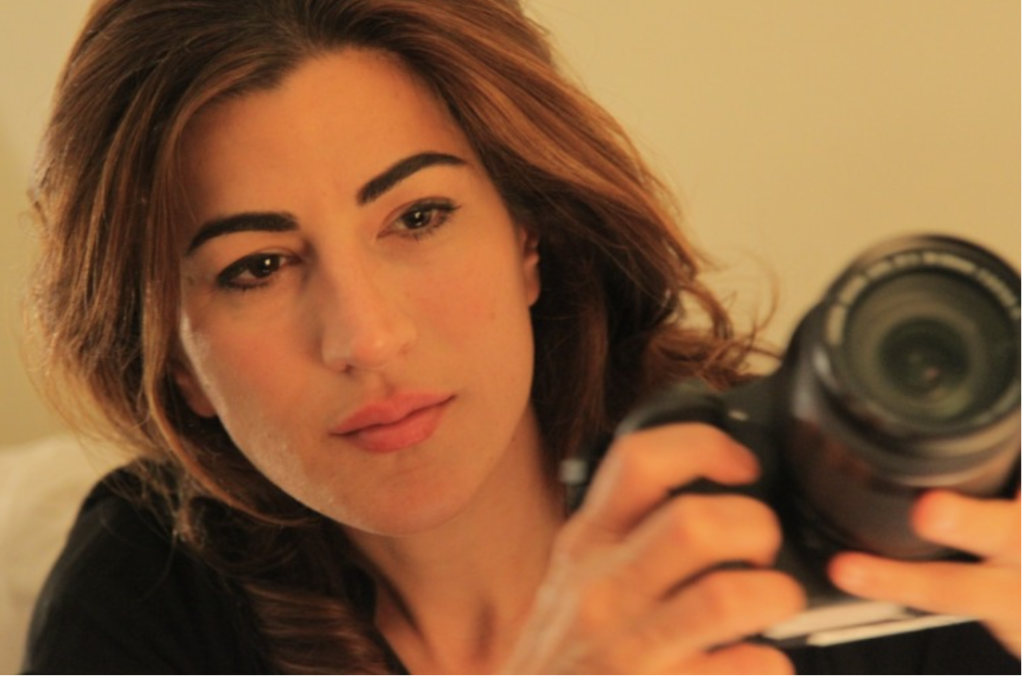Pathbreakers of Arab America --Jehan Noujaim

By John Mason / Arab America Contributing Writer
This is the fortieth of Arab America’s series on American pathbreakers of Arab descent. The series includes personalities from entertainment, business, sports, science, academia, journalism, and politics, among other areas. Our fortieth pathbreaker, Jehan Noujaim, is a renowned Arab American documentary filmmaker born to a Lebanese father and an American mother. Jehan is widely known for the art of storytelling through film, especially in revealing the complexities of the lives of specific people living under conditions of strife and conflict. These are often Arab peoples.
Jehan Noujaim employs cross-cultural understanding and empathy in navigating a brilliant approach to filmmaking
Jehan was born in Washington, D.C., on May 17, 1974. After being raised in Kuwait and Egypt, she moved back to the States, to Boston. She then studied at Milton Academy, followed by her entry to Harvard University. Initially, Jehan had intended to study for a medical degree. Still, following her heart, she ended up in the visual arts and philosophy, where her interest in photography and filmmaking evolved. She graduated magna cum laude in 1996.
While still at Harvard, according to Wikipedia, Jehan worked with her classmates in filming a documentary, ‘Blue Hill Avenue.’ This story is about how gangs manipulate their environment in and around Roxbury Massachusetts. In 2002, Jehan’s interest in Arabs took her to a village in Mokattam Hills in the outskirts of Cairo, where she filmed the now-famous garbage collectors, known for their meticulous recycling methods. That film is titled ‘Mokattam.’
Jehan found a subject of interest at the beginning of the Iraq war, in which the U.S. invaded Iraq in 2003. Just two weeks before the war, she found an entrée to Al-Jazeera broadcasting and the U.S. military’s Central Command offices in Qatar. She said that she’d been in the “right place at that very wrong time,” the result of which was that she caught the onset and outbreak of the Iraq war on film. The resulting documentary, ‘Control Room’ (2004), “exposed the divergent ways the Middle East and the West covered the war” by portraying images of war and questioning how viewers perceive them.
Jehan achieved a level of objectivity in her portrayal of the ‘Control Room’ by never imposing her own opinion on the topic in the film’s story or rendering her perception of war. In that same film, she also presented a compelling story of how the U.S. Central Command interacted with Al-Jazeera and other news organizations. In 2006, Noujaim won the TED Prize for her work on ‘Control Room.’ She was purportedly one of the first and youngest women to do so.

One of Jehan’s subsequent projects on the Arab World was her film, ‘The Square’ (2013), which premiered at Sundance and was shown on Netflix. It gave viewers, according to news source the TED Blog, “an intimate look at the personal stories and cultural complexities of the 2011 Egyptian revolution.” Jehan had spent most of her childhood in Egypt, so the culture and language were familiar. Filmed by her and her husband, Karem Amer, they tracked the events in Tahrir Square as the Hosni Mubarak regime fell.
The core of ‘The Square’ was “a group of local revolutionaries who had also been drawn to the tumultuous events, including the actor Khalid Abdalla and Aida El-Kashef, a cofounder of ‘Mosireen,’ a media center dedicated to creating citizen journalism during the revolution.” The documentary tracks the charismatic group of individuals through their time at the height of the revolution. It continues to tell their stories even after many other revolutionaries moved on from Tahrir Square. ‘The Square’ won the 2013 Sundance Audience Award in the World Cinema Documentary category.
Noujaim is also known for her work beyond documentary film, including peace-building initiatives to foster dialogue and reconciliation between Israelis and Palestinians. Her presentations at film festivals, panel discussions, and educational programs have been aimed at engendering constructive dialogue and mutual understanding.
Noujaim’s ‘The Square’—chronicling the Egyptian Revolution from multiple perspectives
In ‘The Square,’ Jehane chronicles the hopes, frustrations, and aspirations of the Egyptian people as they strive for political change. But, while the Revolution didn’t achieve the broad political reforms many had hoped for, she wants “people to see this is not only a story about Egypt. This is a story about struggle, fighting for your beliefs, and putting everything on the line to fight for what you believe in.” The following conversation derives from a TED Q&A Blog (2013).
Although Jehan’s responses to questions about ‘The Square’ are dated, she believes a revolution in Egypt’s future is possible. She noted, “What the Egyptians are fighting against is the removal of a regime, which means changing the system. That means dealing a major blow to the entrenched systems that are in place, and that includes the army, the police state, the former regime, and the Muslim Brotherhood … not because of religious reasons, but because what the Brotherhood tried to do when they got into power was a massive power grab, and so it’s really been a fight against another dictatorship.”

When asked how things in Egypt have changed since Jehan was a child growing up in Egypt, she responded, “Probably the biggest change is really seeing people realize that the government is supposed to work for them, rather than them having to be victims of whatever the government decides to do.” Her husband, Karem, noted, “Egypt is an epicenter of centralized states. Egypt is the land of the Pharaohs. We’ve been living under a Pharaonic type of society for 5,000 years. What changed was a huge shift in people’s expectations of their leadership and their expectations of the future they want to live. That’s why we know that the revolution has been successful regardless of the short-term outcome.”
Recalling the film’s core, the journalist-revolutionaries called ‘Mosireen,’ meaning “adamants,” aim to get cameras out to the people to film injustices. Mosireen filmed its piece of a protest at the presidential palace when Morsi was in power. It was not a positive image of the Muslim Brotherhood. According to Jehan, “As we watch this happen again, the feeling you get is not that Morsi himself is going to be the savior and change things, but that people are going to keep fighting against the dictatorship and against this kind of rule.”
In her work in Egypt, Jehan was arrested and jailed for her filming, and the police confiscated many of her team’s cameras and footage. Nevertheless, she noted, “we still managed to get all of the footage out of the country and to put a film together.” As Jehan’s husband, Karem, put it, “When you’re documenting something so close to home, what’s at stake for everyone in the film, the whole team, is your country. Your country is being reshaped and redefined, and you can hopefully make an impression through the film. So, there’s a lot at stake and a lot of emotion.”
One of the characters in the film perhaps put it best: “This film … is the truth that must be preserved…our generation and our parent’s generation grew up in a country where history was written by whoever was in power, and they could write and say whatever they wanted. This film is our ability to show an alternative version, to preserve the truth of what happened in this square, and if this film succeeds, then our kids will live in a free country.”
Sources:
– “Jehane Noujaim,” Wikipedia Biographies of Arab Americans, 2024
– “Jehane Noujaim,” TED Speaker, 7/2006
– “Revolution in ‘The Square’: Q&A with Jehan Noujaim,” TED Blog, 2/23/2013
John Mason, Ph.D., focuses on Arab culture, society, and history is the author of LEFT-HANDED IN AN ISLAMIC WORLD: An Anthropologist’s Journey into the Middle East, New Academia Publishing, 2017. He has taught at the University of Libya, Benghazi, Rennselaer Polytechnic Institute in New York, and the American University in Cairo; John served with the United Nations in Tripoli, Libya, and consulted extensively on socioeconomic and political development for USAID and the World Bank in 65 countries.
The views and opinions expressed in this article are those of the author and do not necessarily reflect the position of Arab America. The reproduction of this article is permissible with proper credit to Arab America and the author.
Check out our Blog here!








